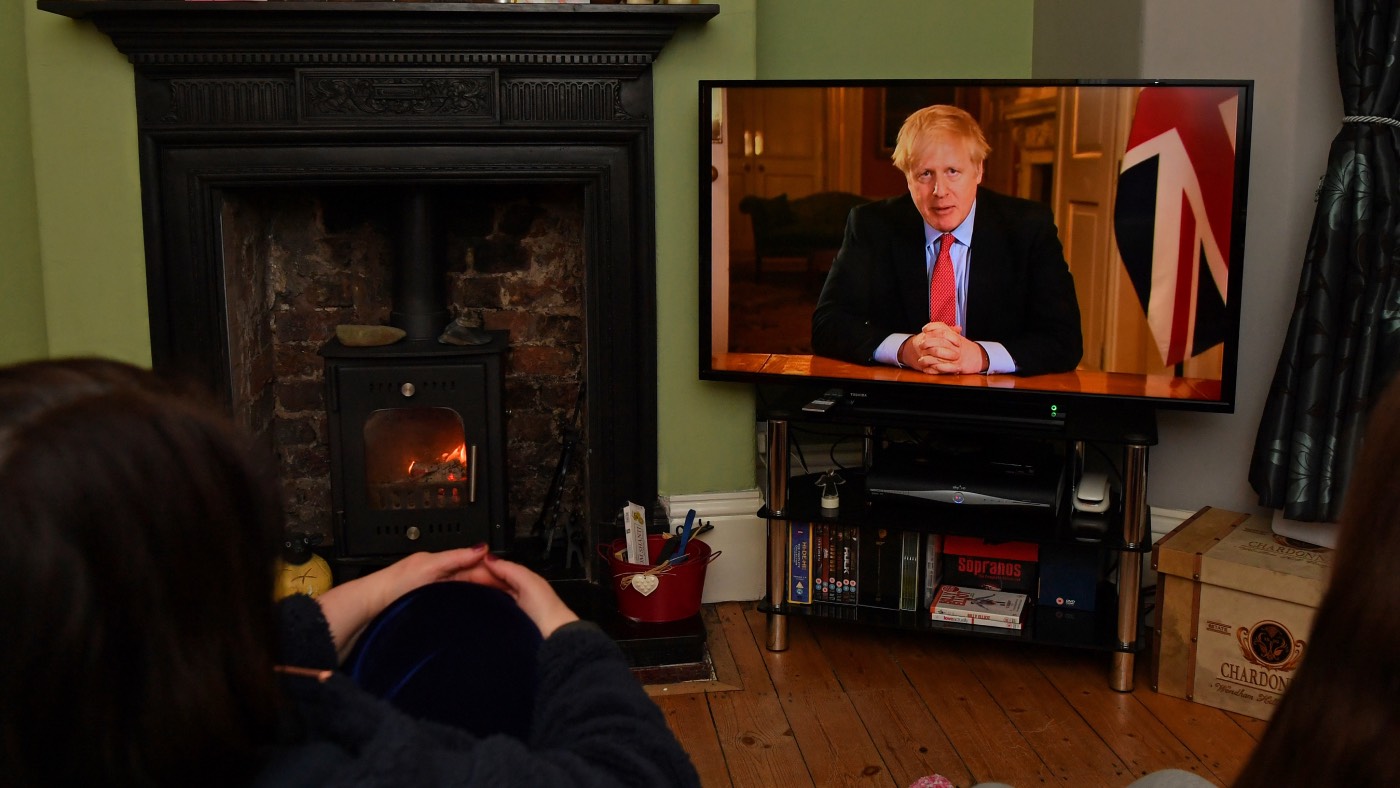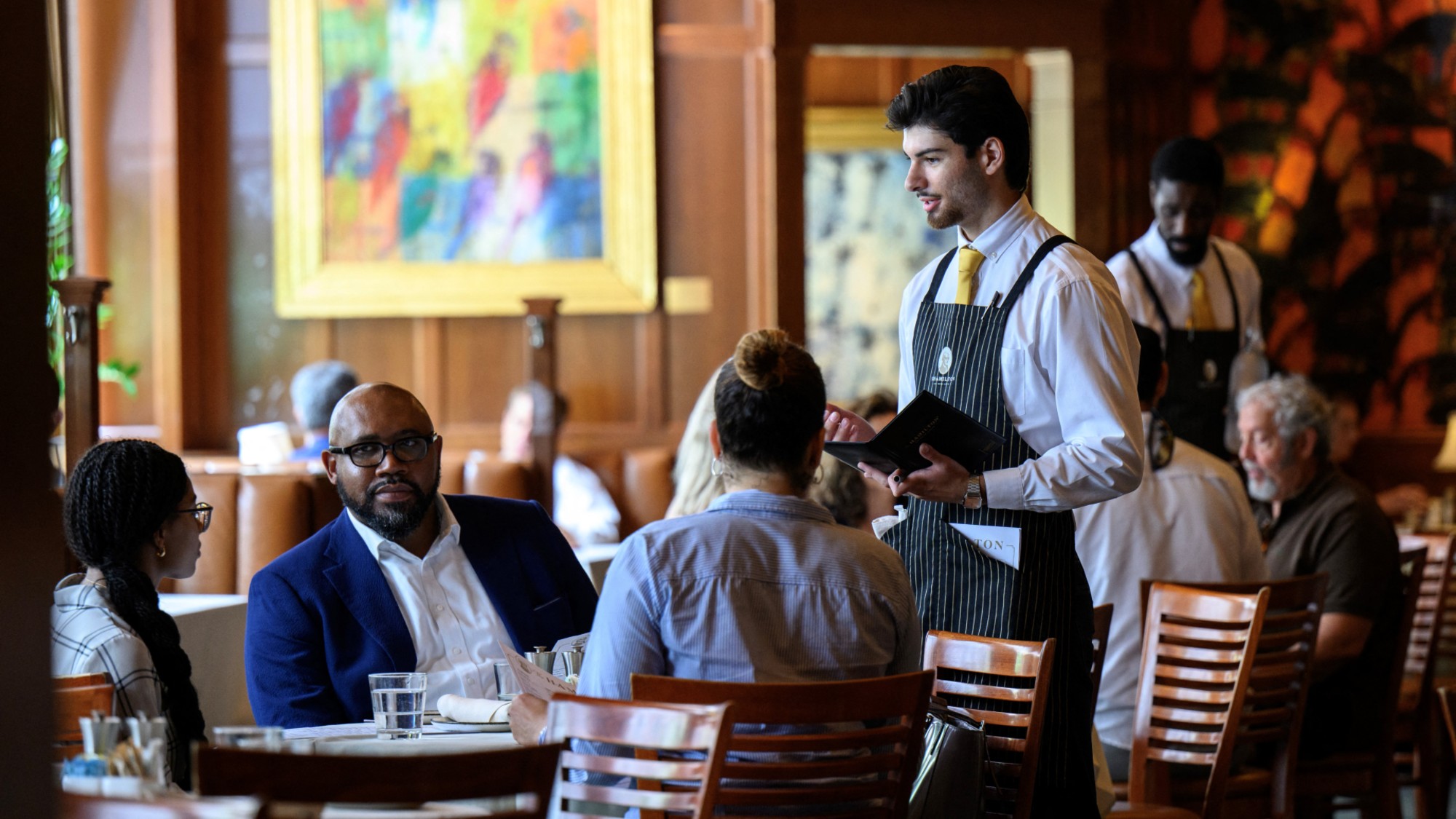‘Stay at home’: Reaction as PM imposes strictest UK lockdown ‘in living memory’
Boris Johnson says police will have power to enforce emergency coronavirus measures

A free daily email with the biggest news stories of the day – and the best features from TheWeek.com
You are now subscribed
Your newsletter sign-up was successful
Boris Johnson has received widespread support after last night announcing a nationwide lockdown in a bid to stem the coronavirus outbreak.
In a televised statement, the prime minister told the British public that they “must stay at home”, announcing a raft of lockdown restrictions to limit the spread of the virus.
Describing this as a “moment of national emergency”, Johnson said people may only leave home to exercise once a day, to travel to and from work where “absolutely necessary”, to shop for essential items and to fulfil any medical or care needs.
The Week
Escape your echo chamber. Get the facts behind the news, plus analysis from multiple perspectives.

Sign up for The Week's Free Newsletters
From our morning news briefing to a weekly Good News Newsletter, get the best of The Week delivered directly to your inbox.
From our morning news briefing to a weekly Good News Newsletter, get the best of The Week delivered directly to your inbox.
He added that if people do not follow the rules, police will have the power to enforce the measures through fines and dispersing gatherings.
–––––––––––––––––––––––––––––––For a round-up of the most important stories from around the world - and a concise, refreshing and balanced take on the week’s news agenda - try The Week magazine. Get your first six issues for £6–––––––––––––––––––––––––––––––
The move has received support from across the political spectrum, with Labour leader Jeremy Corbyn tweeting: “This is the right response to the coronavirus pandemic, and one we have been calling for.”
London Mayor Sadiq Khan also backed the move, saying in a statement: “Anyone who knows me, knows my liberal instincts, and I do not take this lightly - but these unprecedented circumstances require extraordinary measures.”
A free daily email with the biggest news stories of the day – and the best features from TheWeek.com
Acting leader of the Liberal Democrats, Ed Davey, added that while many would be “anxious” about the measures: “It is the right decision to restrict our normal way of life to tackle this crisis.”
The director general of the Confederation of British Industry, Carolyn Fairbairn, noted that the “latest measures will of course present great challenges, disrupting daily lives and the normal run of business”, but also backed the lockdown, adding: “Protecting the public will protect businesses in the long run.”
Within minutes of the prime minister’s announcement, Marin Hewitt, the chair of the National Police Chiefs Council, said the force was working “with the government and other agencies to consider how these new rules can be most effectively enforced”.
An unnamed police source told The Guardian that some officers were unhappy at the prospect of enforcing strict measures, describing it as “a total change of policing style”.
Mail on Sunday columnist Peter Hitchens, who has railed against lockdown measures for some days, offered a dissenting voice. Hitchens tweeted that anyone who welcomes the measures are “complacent fools, who do not deserve the liberty they inherited”.
However, Quentin Letts of The Times gave a more measured verdict on the prime minister’s announcement.
“The pace of his delivery, rattling it out, accentuated that this was a leader working in overdrive,” Letts wrote. “There was no time to lose. The absence of melodrama, paradoxically, made it all the more striking and urgent.”
As the UK death toll reaches 335, there may be more strict measures to come. The BBC’s political editor, Laura Kuenssberg, pointed out that Johnson could have gone further - and may yet do so.
“Remember this though, is not quite the kind of total crackdown we have seen in other countries - at least not yet,” she writes. “Despite tonight’s enormous announcement, there are steps that other places have taken - curfews or total travel bans for example - that the UK is not pursuing.”
Kuenssberg also highlights that the government is not triggering the Civil Contingencies Act, which is designed for the most serious emergencies and gives ministers more wide-ranging executive powers.
-
 Local elections 2026: where are they and who is expected to win?
Local elections 2026: where are they and who is expected to win?The Explainer Labour is braced for heavy losses and U-turn on postponing some council elections hasn’t helped the party’s prospects
-
 6 of the world’s most accessible destinations
6 of the world’s most accessible destinationsThe Week Recommends Experience all of Berlin, Singapore and Sydney
-
 How the FCC’s ‘equal time’ rule works
How the FCC’s ‘equal time’ rule worksIn the Spotlight The law is at the heart of the Colbert-CBS conflict
-
 Local elections 2026: where are they and who is expected to win?
Local elections 2026: where are they and who is expected to win?The Explainer Labour is braced for heavy losses and U-turn on postponing some council elections hasn’t helped the party’s prospects
-
 How corrupt is the UK?
How corrupt is the UK?The Explainer Decline in standards ‘risks becoming a defining feature of our political culture’ as Britain falls to lowest ever score on global index
-
 The high street: Britain’s next political battleground?
The high street: Britain’s next political battleground?In the Spotlight Mass closure of shops and influx of organised crime are fuelling voter anger, and offer an opening for Reform UK
-
 Is a Reform-Tory pact becoming more likely?
Is a Reform-Tory pact becoming more likely?Today’s Big Question Nigel Farage’s party is ahead in the polls but still falls well short of a Commons majority, while Conservatives are still losing MPs to Reform
-
 Asylum hotels: everything you need to know
Asylum hotels: everything you need to knowThe Explainer Using hotels to house asylum seekers has proved extremely unpopular. Why, and what can the government do about it?
-
 Massacre in the favela: Rio’s police take on the gangs
Massacre in the favela: Rio’s police take on the gangsIn the Spotlight The ‘defence operation’ killed 132 suspected gang members, but could spark ‘more hatred and revenge’
-
 ‘The business ultimately has a customer base to answer to’
‘The business ultimately has a customer base to answer to’Instant Opinion Opinion, comment and editorials of the day
-
 Taking the low road: why the SNP is still standing strong
Taking the low road: why the SNP is still standing strongTalking Point Party is on track for a fifth consecutive victory in May’s Holyrood election, despite controversies and plummeting support